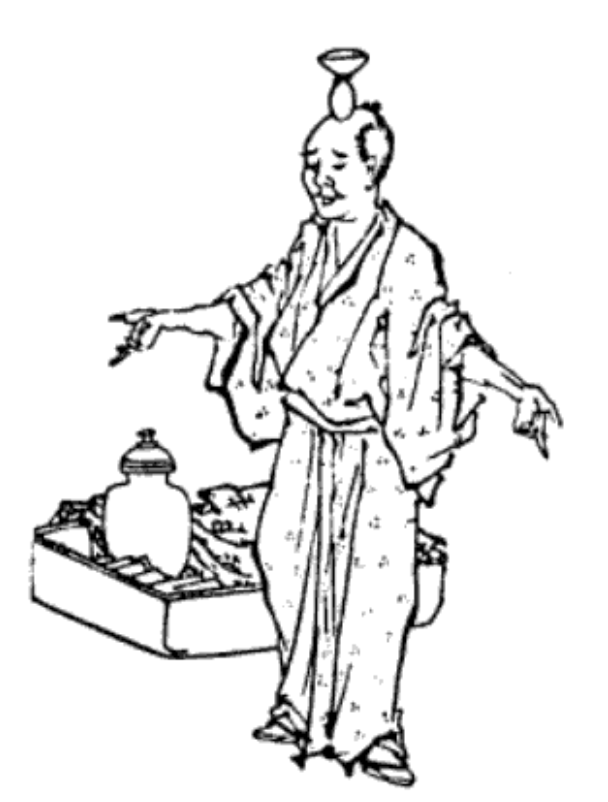George F. Kennan ’25: Japanese-American Relations Today
For the present, if any changes are needed in the Japanese-American security arrangements, they would seem to be small ones, and ones of degree – designed merely to eliminate rough edges and to achieve better understanding. Commendable progress has already been made in reducing the number of the American forces stationed in Japan and in limiting the inconvenience and annoyance they bring to their Japanese hosts. The presence in Tokyo of an American Ambassador sensitive to all shades and sectors of Japanese opinion, conversant with the Japanese language, culture and history, and supported by a highly trained and competent staff, has already done much to dissipate the misunderstandings which American diplomacy, as well as the military presence, have encountered. The tasks of intellectually mediation between these two countries, where the technical difficulties of communication are truly formidable, is one for specialists. It is not accomplished, as many Americans like to believe, merely by thrusting ordinary people together and “letting them get to know each other.” That the United States Government has recognized this represents the most positive contribution it has made in recent times to the development of relations with Japan, and one which – if properly supported at home – may be expected to bear further fruit.
The specific point at which, for the moment, there is greatest opportunity for improvement is probably Okinawa. Here, all one could ask is that the American military authorities bear in mind that the fate of the Okinawans is something to which Japanese opinion is extremely sensitive. With the appointment in August of a new High Commissioner to the Ryukyus, there has seemed to be a new recognition that there can be instances where measure to curtail the weight of the American military establishment, as it rests on the local population, are warranted by regard for Japanese opinion even if they constitute something less than the military ideal.
The longer future is a different matter. It presents both greater dangers and greater possibilities. The present Treaty of Mutual Cooperation and Security has a ten-year term. It does not automatically expire at the end of that term; it continues unless one side or the other gives notice of a desire to terminate it. It might be difficult, in these circumstances, for the Japanese to call for its renegotiation without this appearing to be something more of a political demonstration than it was meant to be. When the difficulties arose in 1960 over ratification of the Treaty, one of the principal objections voiced, even in moderate Japanese circles friendly to the United States, was that the Treaty’s term of validity was too long and would give the Japanese Government inadequate opportunity to assure that its terms and operation remained at all times suitable to the needs of a developing situation.
One wonders whether the purposes both of courtesy and of political expediency would not be served if the United States Government, instead of simply letting the term of the Treaty run its course and invite automatic renewal, were to enter into consultations at an early date with a view to affording the Japanese Government an opportunity to state its views on the suitability of the various arrangements in the current situation, and perhaps on the question of the Treaty’s term as well.
There is, incidentally, a further reason why it would be desirable to keep currently in touch with the Japanese Government concerning the future of the Treaty. The NATO treaty comes up in 1969 for review and possible revision. This will no doubt occasion a good deal of public and official discussion in the preceding period. Japanese opinion will be sensitive to whatever is said and done concerning the future of NATO. For the Japanese to be confronted with anything in the nature of a fait accompli on this sector would be almost certainly deleterious to the American-Japanese relationship in general; and this is something which timely consultation could prevent.
In judging the advisability of consultations with the Japanese concerning the future of the special security relationship, Americans can useful bear in mind certain considerations.
There is, first, the fact that the establishment of better relations between Japan and the countries of the Asian mainland is, in the long run, an essential requirement, politically and psychologically, of Japanese policy. The instincts, outlooks and needs of the Japanese people simply will not tolerate for long anything that appears to be an effort to enlist Japan as a passive instrument in an all-out cold war to which no one in Japan can see a favorable issue generally and which seems to imply the indefinite renunciation by Japan of all hopes for a better relationship with the mainland. Anything of this sort can only exacerbate the divisions already existing in Japanese society, increase the difficulties of the Japanese Government, and be destructive of the foundations of the U.S.-Japanese relationship. If the United States wishes to preserve as an effective ally the most industrious and economically advanced of the East Asian peoples, a people with extraordinary civilizing and technological talents, disposing over what is already far and away the greatest industrial workshop of Asia, it will have to shape the mutual security relationship between the two countries in such a way that it conduces to overcoming rather than prolonging the division now so unnaturally prevailing between Japan and her mainland neighbors.
Many of us may have our doubts – some Japanese have them, too – as to how much Japan would stand to gain, in the present circumstances, from the cultivation of closer relations with Communist China, in particular. But if these doubts have merit, this is something the Japanese will have to discover for themselves, as a lesson of experience. It will not do just for us to assure them of it…
The second point that might well be borne in mind, as one considers the future of the Security Treaty, is that, in addition to these psychological and political aspects, arrangements designed to assure Japanese security would be intrinsically strengthened, and very greatly so, if they had the general assent and support of at least one of the two great mainland powers, and that, viewed from this standpoint, the position of Russia is quite different from, and more encouraging than, that of China. This state of affairs could, of course, be greatly affected by the development of Soviet-American relations on a global scale. The active insertion of Soviet power against American efforts to preserve the independence of South Vietnam could obviously create complications in the face of which what is being said here would have little relevance. But assuming that Soviet disapproval of these American efforts is not given active military form, and that there is no major deterioration in the Soviet American relationship from other causes, there should be no reason to despair of the possibility of achieving a more constructive Soviet relationship to the problem of Japanese security.
It is not inconceivable, for example, that in return for relatively moderate concessions on the American side the Soviet Union might be prepared today to make satisfactory settlement of the question of the Soviet-occupied islands off Hokkaido, which have thus far stood in the way of a normalization of Soviet-Japanese relations, to agree to a common peace treaty with Japan, and to associate itself with the United States in a joint guarantee of Japanese security under sanction of the United Nations, thus realizing, at long last, General MacArthur’s farsighted concept…
The question remains as to how these concepts would fit with American policy further afield in Asia, and particularly with American policy toward China. Would an American policy designed expressly to leave open the way for an improvement of relations between Japan and the mainland not conflict with the American position with relation to China, or call for modification of it? And would a readiness to admit the Soviet Union to a share in the responsibility for Japanese security not bewilder allies taught to believe that American policy is aimed at the destruction of Communism, generally, in Asia? The answer to these questions may be brief.
In the case of our China policy, there is no appreciable conflict here insofar as Communist China itself is concerned. There is no reason why Japanese policy toward Communist China should be identical with that of the United States. We have to do here with two different countries, in wholly different geographic and historical situations, with needs and interests which, while compatible, are not identical.
When it comes to the government on Taiwan, the conflict is potentially more serious. The Japanese are, by and large, not without sympathy for the American effort to preserve Taiwan from conquest by the Communist mainland. They are less enthusiastic and less hopeful about the pretention of the Taiwan régime to be the government of all of China, and understandably skeptical about any policy which, by definition, cannot be called successful unless Communism is overthrown and the authority of the Nationalist Government reestablished throughout the entire Chinese Mainland. At the heart of this difficulty lies the assumption, so lightheartedly embraced by F.D.R. and Harry Hopkins at the Cairo Conference and imbedded ever since in U.S. policy, that the only possible future for the island of Taiwan was as an integral part of China. The Japanese, one senses, would feel far more comfortable if the United State were to take a less doctrinaire position on this point and recognize that the final status of this island, in the light of all that has occurred since 1943, is something which ought ultimately to be determined with due regard to the feelings of the inhabitants and to the needs of peace and stability in the Pacific area generally – a formula which would not preclude a permanent association with China but would also not assure it or attempt to define what it might conceivably be. Were this adjustment to be made in the American view, so that one could treat the problem in terms not just of a possible “one China” or “two Chinas” but also in terms of a possible “one China – one Taiwan,” there would be no reason why the Japanese-U.S. relationship should be at any point seriously disturbed over the China issue. So far as the Soviet Union is concerned, the answer is simple but basic. If it is the purpose to destroy, everywhere, all that calls itself Communist, regardless of how it conducts itself in its external relations, then, of course, one cannot contemplate the encouragement of a better Soviet-Japanese relationship. If, on the other hand, it is the purpose to oppose and to frustrate any and all efforts of any power, Communist or not, to subvert and subjugate other peoples or to disrupt world peace, and if Communism is to be fought wherever – but only wherever – it placed itself in this category, then there is no reason why a better Soviet-Japanese relationship should not have its place among the objectives of American statesmanship, and there are formidable reasons why it should.
This was originally published in the December 8, 1964 issue of PAW.













No responses yet